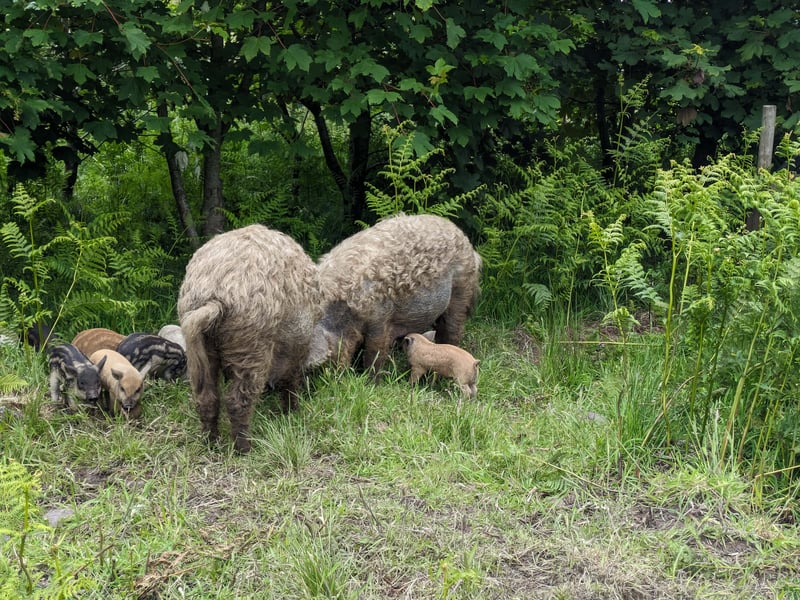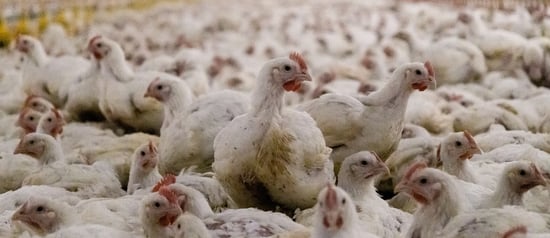
Plans announced by the Environment Secretary could see some farms in England taken out of food production in a shift that raises big questions about the future of our food system.
Speaking at the Groundswell farming festival, Environment Secretary Steve Reed outlined a new land use strategy. The goal? To increase food production in England’s most intensive areas, while reducing, or, in some cases, stopping farming on land that’s considered less productive, such as upland farms.
This shift is part of a broader move to give space back to nature, support climate goals and ensure land is used “optimally” for a range of needs: from housing and energy to food and biodiversity.
What's really at stake?
So far, there are no compulsory changes being enforced but the land use framework will influence how farming subsidies are allocated. This could mean upland farms, which are heavily dependent on subsidies, could be encouraged (or economically forced) to stop producing food altogether.
Some of this land might instead be restored to wildflower meadows, used for peatland restoration, or managed to support biodiversity and water quality - all of which have environmental benefits. But what happens to the farmers? And how do we ensure the land doesn’t simply get handed over to big agribusiness, development, or worse - left behind?
The risk is that we miss the opportunity to build a truly fair and sustainable food system.
It’s time for a Just Transition
We believe that we must move away from intensive, industrial farming and towards a Just Transition, one that protects the planet, gives animals better lives, and supports farmers to be part of the solution.
That means investing in mixed land use and high-welfare, sustainable farming. It means creating a system where farmers aren’t rewarded for producing the highest volume at the lowest cost, but for farming in ways that protect animals and nature.
As our UK Farming Campaign Manager, Lindsay Duncan, puts it:
The government must think about land use differently. It must move away from assuming high productivity, which focuses on the volume of food produced, is the future.
To build a sustainable food system, the government must support mixed land use. This includes hill farming. Mixed land use can improve biodiversity, help combat climate change and produce high-welfare sustainable food that is resilient to external pressures, like energy price hikes and trade wars.
Public money for public good or for more of the same?
The government has also reopened a £150 million fund that pays farmers for environmental actions like wildlife conservation, educational visits and slurry storage. From next year, they’ll even pay farmers to dig ponds to support biodiversity.
That sounds promising but we’ve been here before.
The previous “public money for public goods” model was designed to reward nature-friendly farming. Yet recent years have seen a chaotic rollout, budget cuts, and reversals that left many farmers unsure where they stand. Trust must be rebuilt and action must follow.
If done right, the new scheme could support small farms, protect animals and restore nature. But if it's captured by large-scale industrial producers or excludes marginal farms, it risks deepening the divide.
Factory farming isn’t the answer
There’s a real danger that by focusing food production in England’s most intensive areas, we’ll deepen our reliance on factory farming - systems that prioritise volume over welfare, cramming animals into sheds and polluting the land and water.
This model is fragile, unjust, and harmful. It leaves us exposed to global shocks, from energy price spikes to trade disruptions and climate extremes.
The future of farming must be humane, sustainable and resilient, and that means listening to the voices of farmers, not just the demands of agribusiness.
What needs to happen next?
-
The government must ensure upland and marginal farmers aren’t abandoned.
-
Land use decisions should support biodiversity, food security and animal welfare — not just yield.
-
The shift away from food production must not be used as an excuse to intensify factory farming elsewhere.
-
Farming subsidies must reward compassion, sustainability and resilience.
We’re calling on policymakers to centre animals, farmers and nature in decisions about the future of our land. A Just Transition is not only possible - it’s essential.
Let’s build a food system that works for everyone
Call for an end to cruel factory farming
Sign our petition to the UK government and let them know that there is no future for factory farming.
